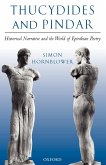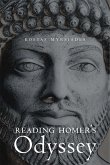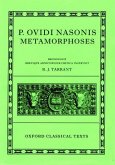The Aeneid can strike one as a relatively conventional epic. It may seem an objective heroic tale of Rome's beginnings, unshocking in tone and substance, indeed (and more particularly) patriotic and inspiring. Vergil designed it so that it might read in this way. This is one 'voice' that he wished us to hear. We may call it the epic voice. But there are 'further voices'. Imagery and other stylistic devices are exploited to insinuate ramifying meanings and messages for those prepared to listen, and these may be disturbing, even shocking, as they add to, comment upon, question and occasionally subvert the implications of the epic voice. This book examines and illustrates Vergil's method of intruding such further voices. In doing so it illuminates with unusual clarity the manner and content of Vergil's communications; it is as if one is taken inside Vergil's workshop, indeed inside his mind.
There is in The Aeneid one "voice" that Vergil wishes us to hear, what may be called the epic voice, not shocking in tone and substance, even patriotic and inspiriting. But there are in addition "further voices" which Vergil incorporates into his great epic, and these may be disturbing, even shocking, as they add to, comment upon, question, and occasionally subvert the implications of the epic voice. This book provides the first in-depth analysis of these "further voices," illuminating with unusual clarity Vergil's method of composition and yielding an intimate glimpse into the working of his mind. Lyne has translated all Latin quotes, making the book accessible to readers with little or no knowledge of classical languages.
Hinweis: Dieser Artikel kann nur an eine deutsche Lieferadresse ausgeliefert werden.
There is in The Aeneid one "voice" that Vergil wishes us to hear, what may be called the epic voice, not shocking in tone and substance, even patriotic and inspiriting. But there are in addition "further voices" which Vergil incorporates into his great epic, and these may be disturbing, even shocking, as they add to, comment upon, question, and occasionally subvert the implications of the epic voice. This book provides the first in-depth analysis of these "further voices," illuminating with unusual clarity Vergil's method of composition and yielding an intimate glimpse into the working of his mind. Lyne has translated all Latin quotes, making the book accessible to readers with little or no knowledge of classical languages.
Hinweis: Dieser Artikel kann nur an eine deutsche Lieferadresse ausgeliefert werden.








